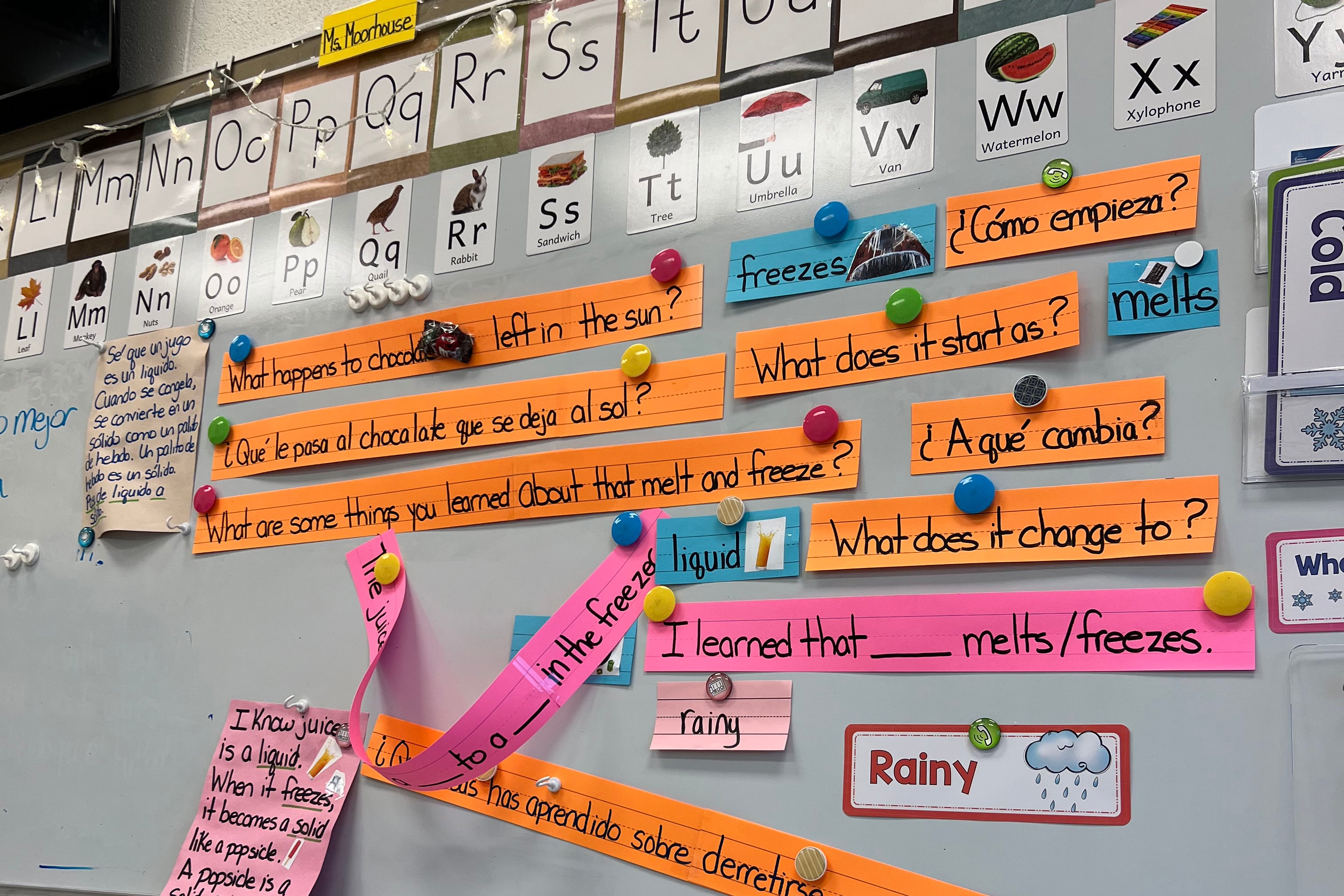Sign up for Chalkbeat’s free weekly newsletter to keep up with how education is changing across the U.S.
The Trump administration will release billions in frozen education funds after widespread outcry, including from Republican members of Congress, about the devastating impacts.
U.S. Rep. Don Bacon, a Nebraska Republican, announced Friday on the social media platform X that the funds would be released. Education Department Deputy Assistant Secretary for Communications Madi Biedermann confirmed the news.
The White House Office for Management and Budget has completed its review, Biedermann said in an email, and told the Education Department to release the money.
“The agency will begin dispersing funds to states next week,” she said.
The Trump administration notified states on June 30 that they would be holding back roughly $6.8 billion in education funds that were due to arrive July 1. That money includes funding for services related to English learners, migrant students, teacher training, and enrichment and afterschool programs, and adult education.
An OMB spokesperson said the money was under review for alignment with Trump administration priorities, and that some money had gone to support a left-wing agenda, a charge that districts and states denied.
Republican members of Congress signed onto a public letter calling for the money to be released. Democratic attorneys general and governors sued demanding that the money be restored.
On July 18, the administration announced that $1.3 billion in after-school funds would be released, but said nothing about the rest of the funds.
The School Superintendents Association had lobbied extensively for the return of the money. In a survey of 628 members released earlier this week, nearly three-quarters said they would have to cut academic programming and half said they expected to lay off teachers and other employees if funding was not restored soon. A similar share said they had to make critical decisions by Aug. 15 or even sooner.
In a statement, David Schuler, the executive director of the association, said he was “pleased” that the money would be released.
The news that the funds would be released comes after reporting earlier this week from multiple outlets that the White House Office of Management and Budget might seek to permanently claw back the money.
Trump’s 2026 budget proposal also calls for these funding streams to be eliminated and replaced by a single, much smaller block grant.
In a statement, Colorado Education Commissioner Susana Córdova thanked Education Secretary Linda McMahon for helping secure the release of funds, as well as crediting advocacy by teachers, community groups, and local and state leaders.
“Federal dollars provide critical support for every child in Colorado — no matter where they live — to learn, grow, and thrive,“ she said.
National Parents Union President Keri Rodrigues attributed the restoration of funds to advocacy from parents, educators, and governors of both parties.
She said Congress failed to step up to demand that money allocated by lawmakers back in March be distributed as required by law.
“The fact that critical education funding could be arbitrarily frozen for weeks without swift intervention is an unacceptable failure,” Rodrigues said in a statement. “School districts in every corner of the country were thrown into turmoil at a time when they had intended to prepare for the new school year. Hiring plans were put on hold. Services for the most vulnerable students were threatened.”
Editor’s Note: This story has been updated with additional reaction.
Erica Meltzer is Chalkbeat’s national editor based in Colorado. Contact Erica at emeltzer@chalkbeat.org.







